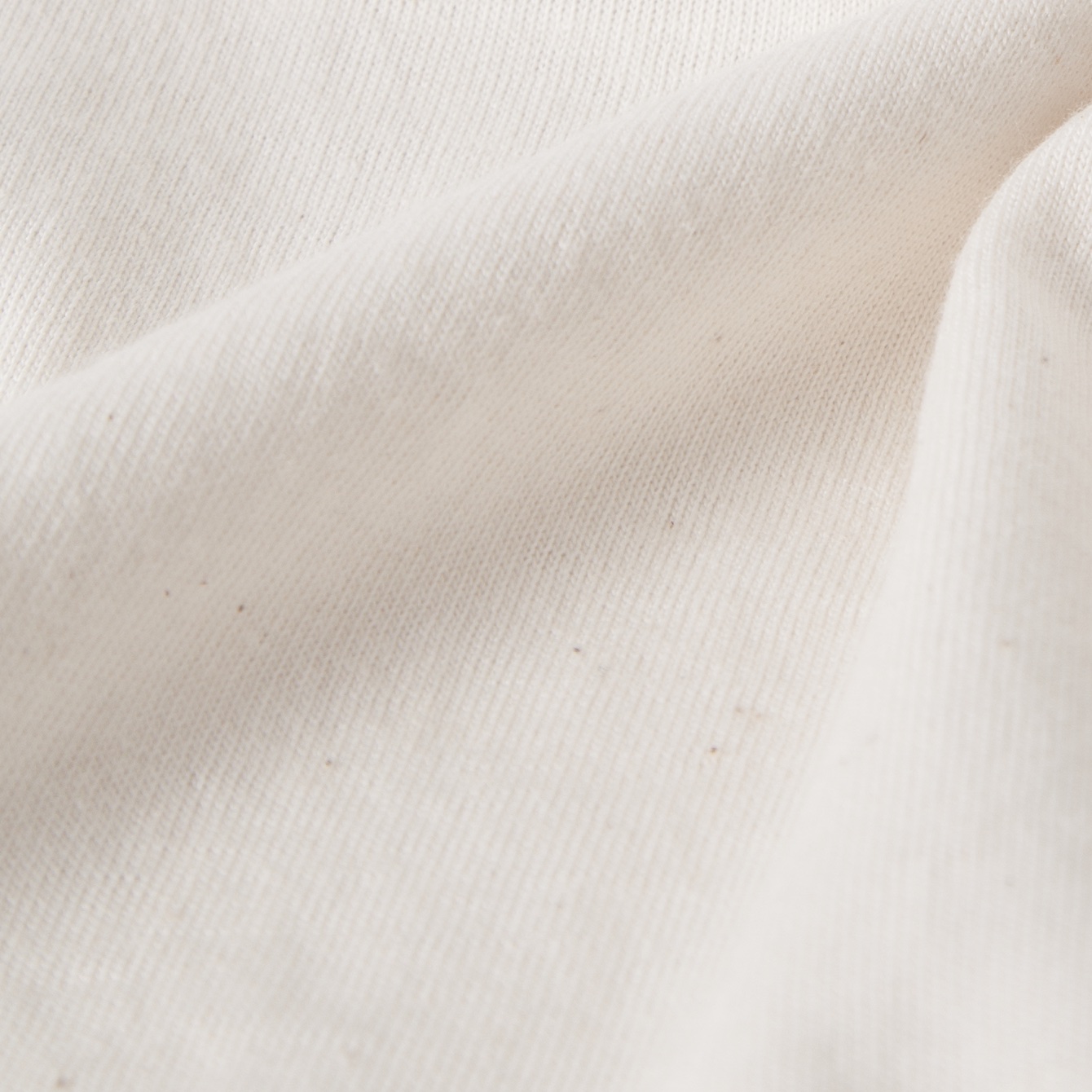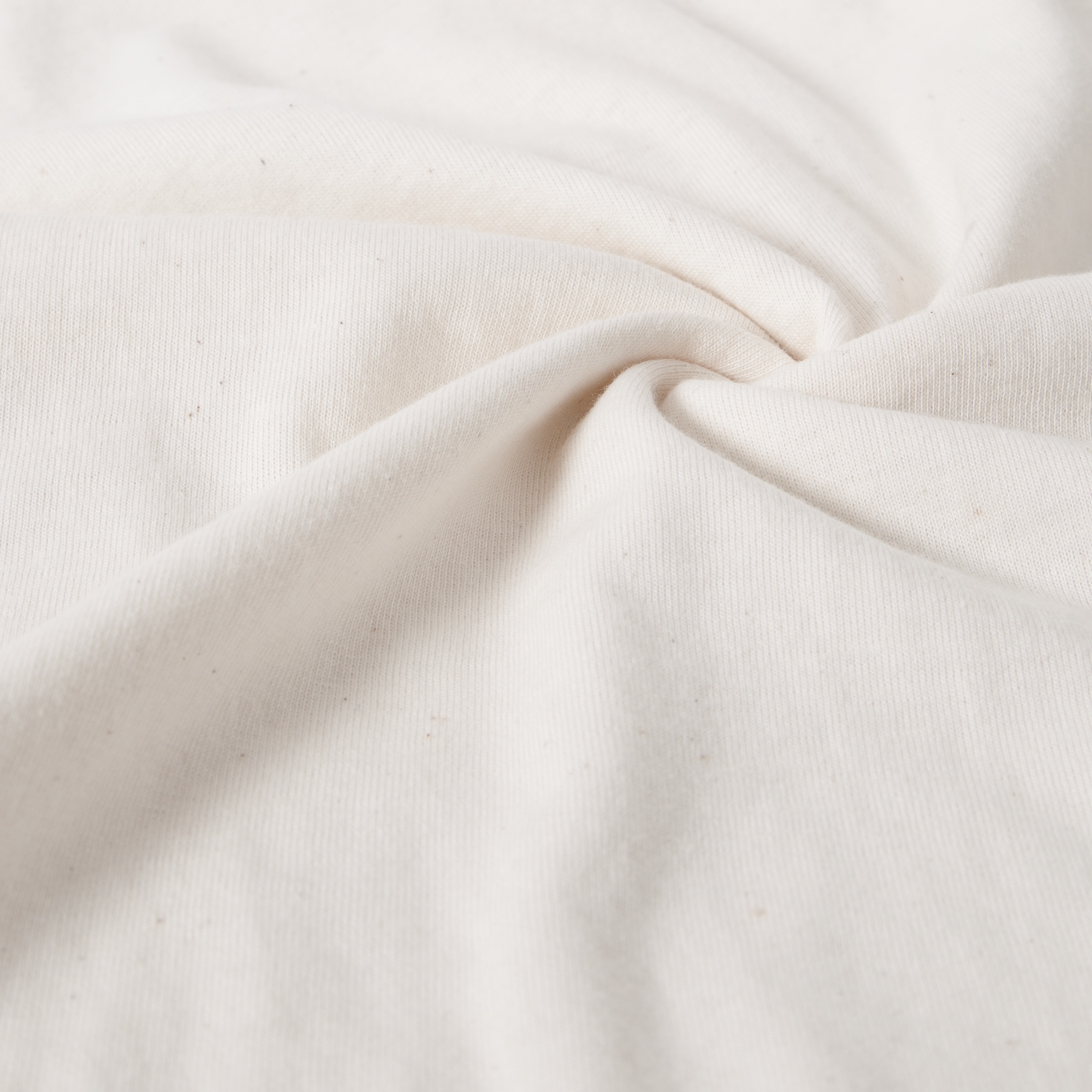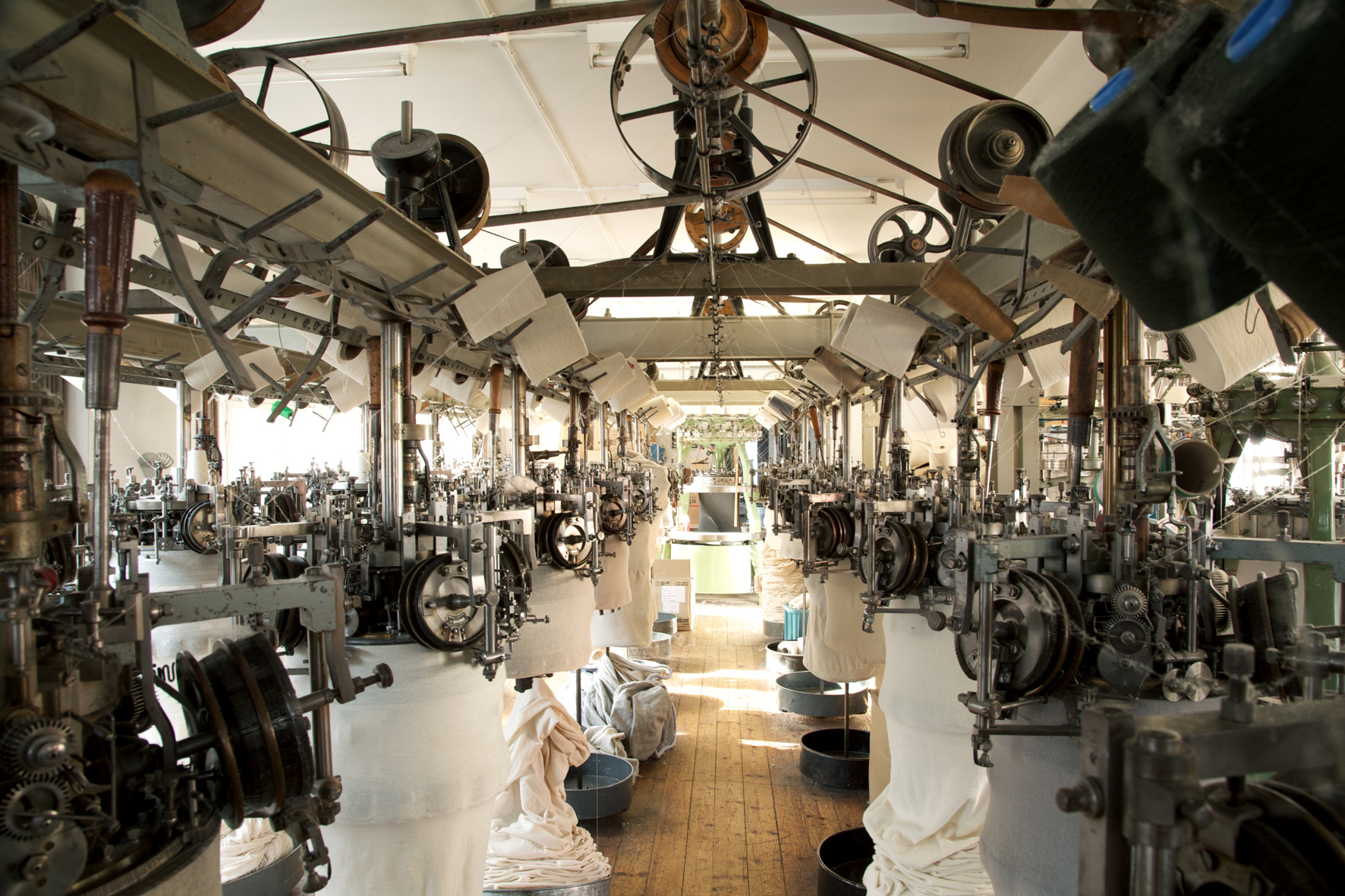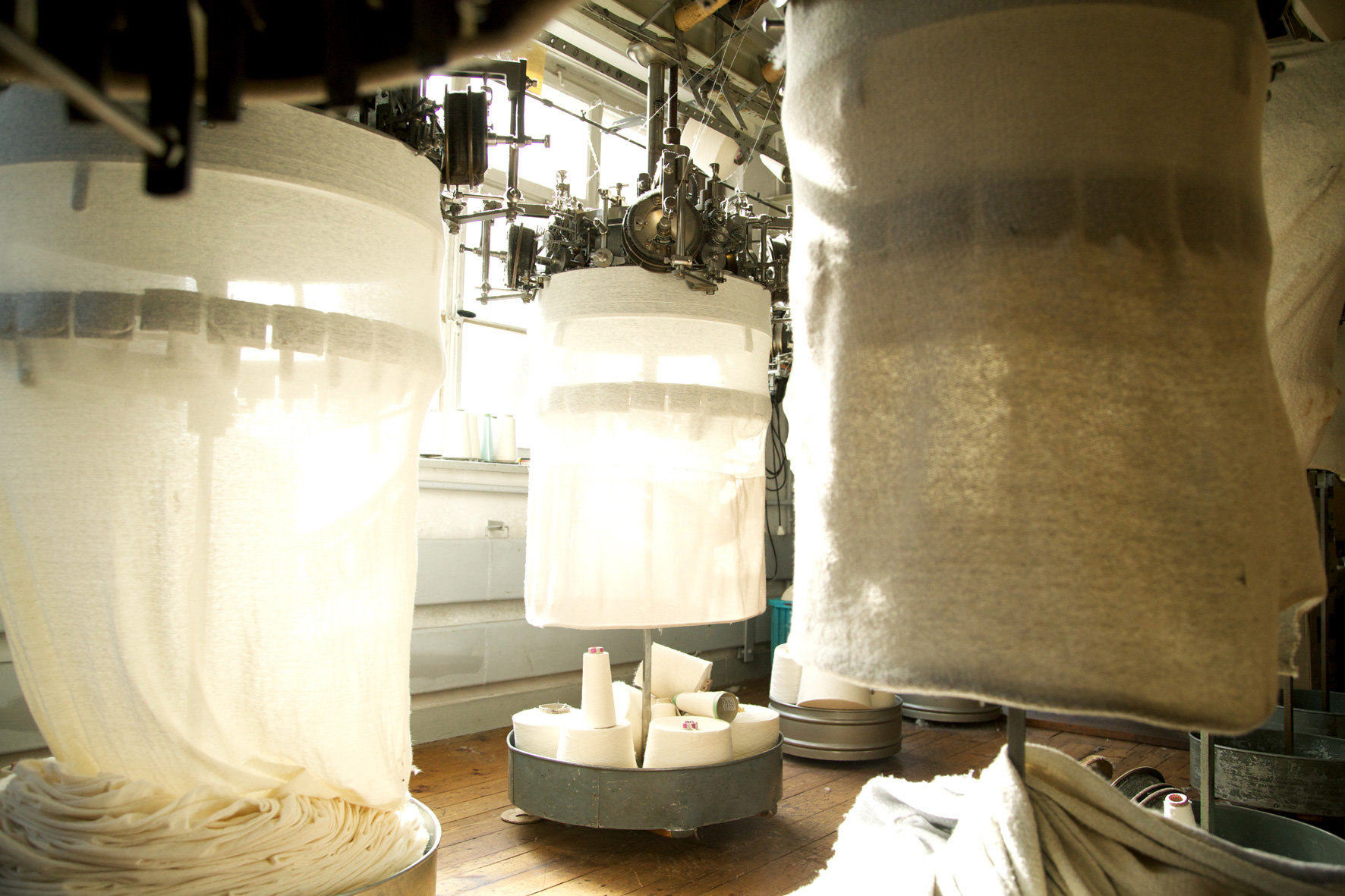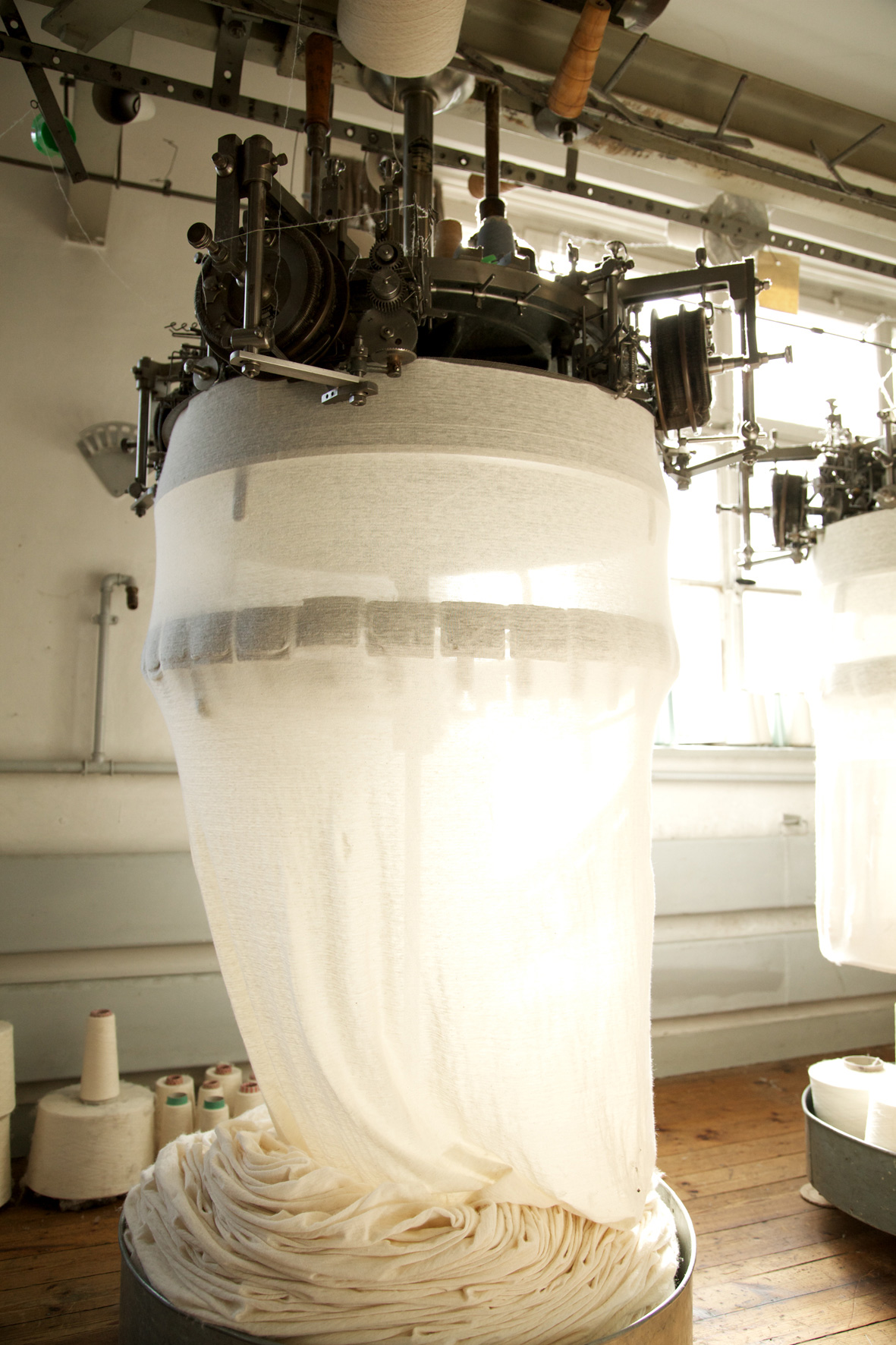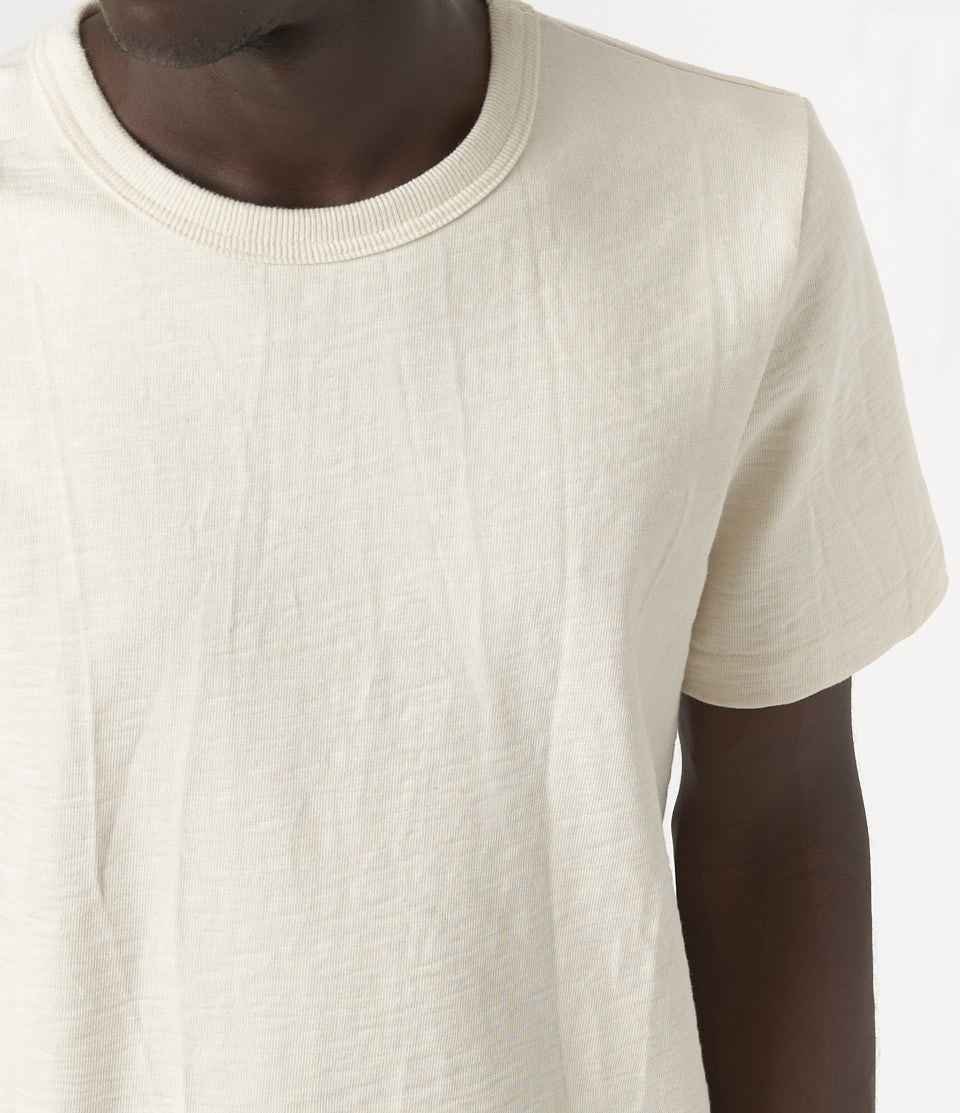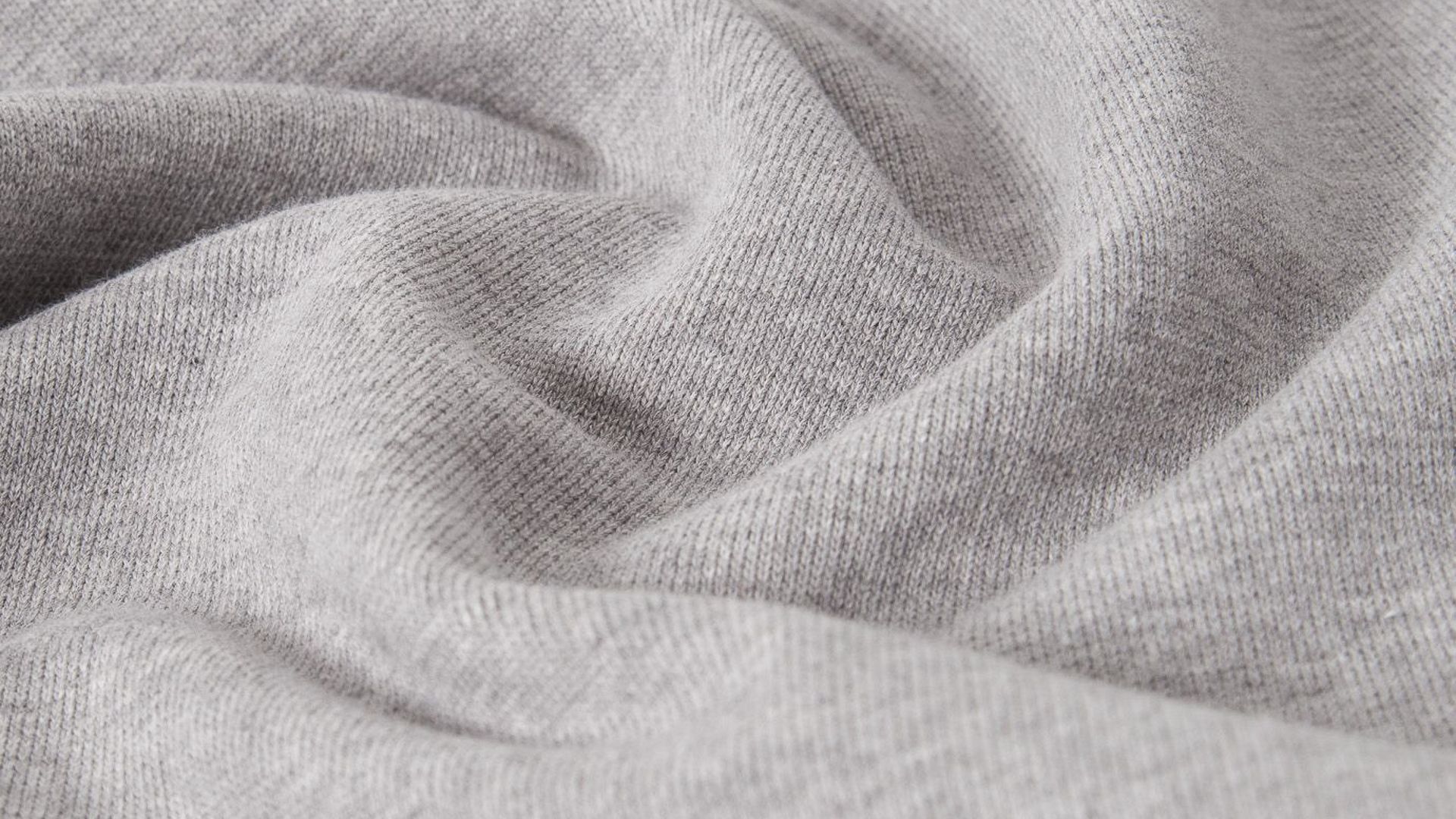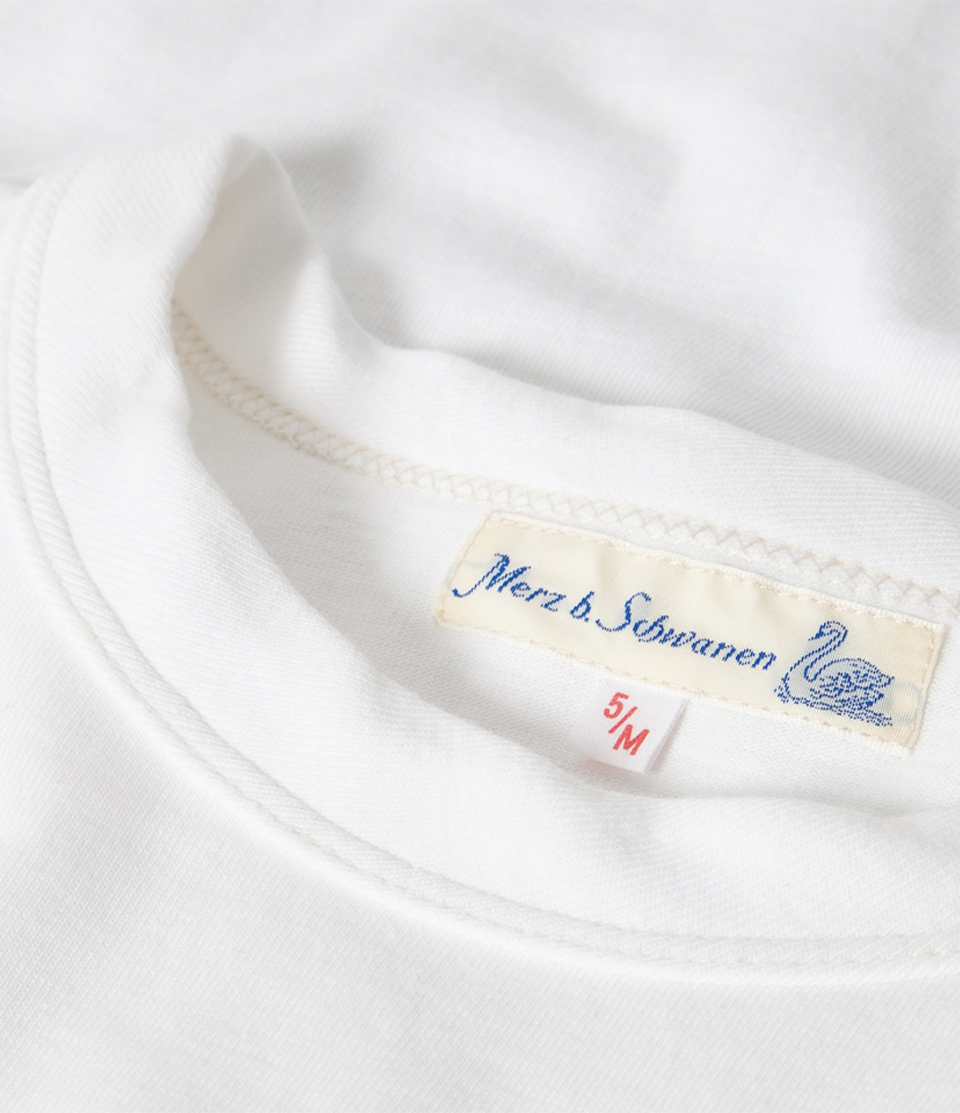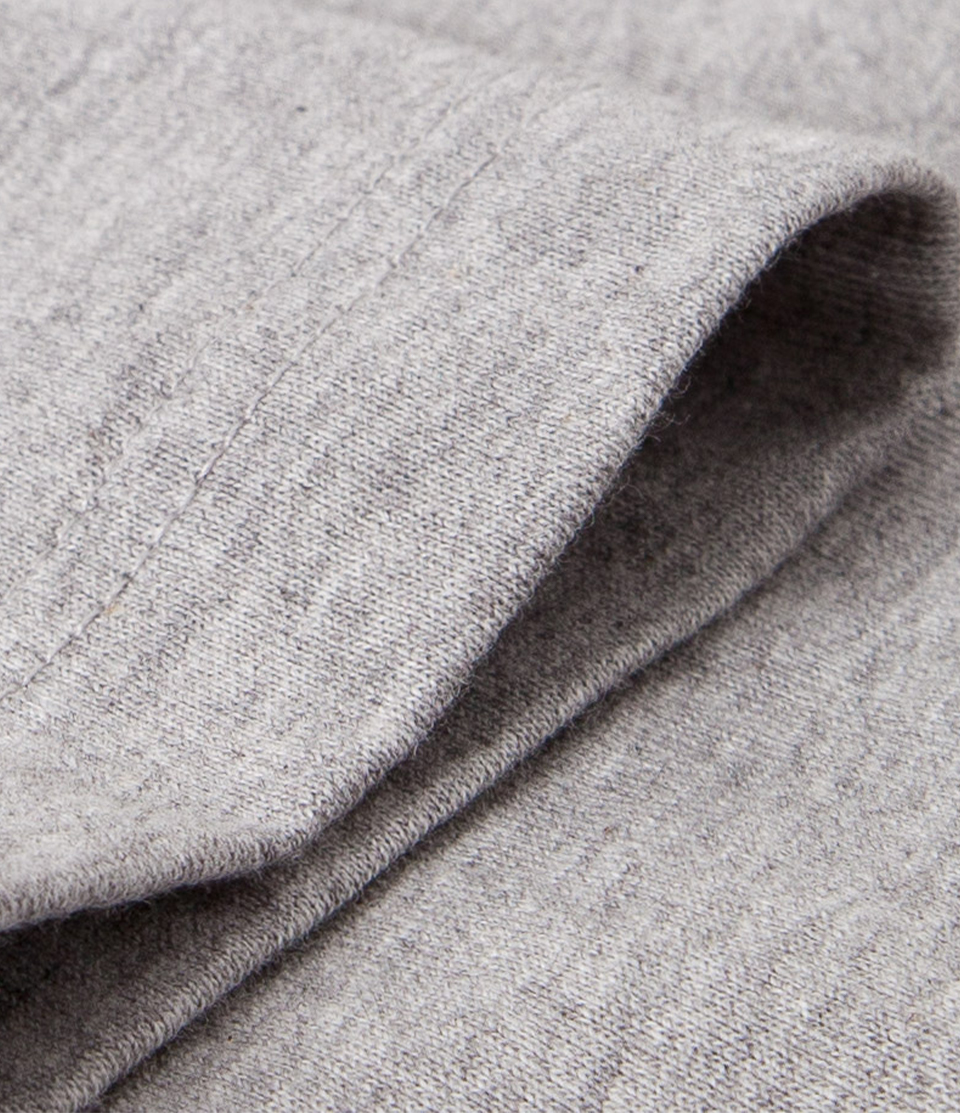Self Edge is now 17 years old. We’re not yet old enough to vote, but we’re old enough to know better. Since we first opened up shop on Valencia St. in San Francisco in 2006, we’ve learned so much and met so many wonderful people. Now that we’re growing up—a little bit, at least—we think it’s time to tell some stories, share some knowledge, and introduce you to some of the remarkable personalities we’ve met along the way.
Welcome to At The Edge.
If you’ve shopped with us for awhile, you may have had the pleasure of wearing truly luxe tees from Merz B. Schwanen and The Flat Head, or vintage-inspired hoodies and crewnecks from The Strike Gold, Iron Heart, Studio D’Artisan, and Warehouse. You might have noticed they all share some things in common: shirt bodies are constructed from one tubular piece of fabric, lacking side seams, and all are made from a particular kind of cotton that is heavy in weight, but indulgently soft to the touch.
These are the trademarks of “loopwheeled” cotton fabric. The specific knitting machine that creates this fabric, called a loopwheel, was patented nearly a century ago by an Italian inventor named Giuseppe Negra. Used widely for cotton knits and sportswear until the middle of the 20th century, they fell out of favor in the 1960s, because they’re slow—painstakingly slow. To knit enough fabric to produce one crewneck sweater takes one loopwheel machine several hours, but a modern circular knitting machine produces that amount of fabric in a fraction of the time.
Yes, these machines are slow and inefficient, but that’s also why loopwheeled cotton has such an extraordinary hand. One touch is all you need to feel the difference: it’s sturdy yet soft, wears like a dream, and just gets better with age. The world moves fast these days. Producing loopwheeled cotton is a matter of dedication and intent, not volume and scale. There are only two major factories in the world left with the knowledge (and the patience) needed to produce loopwheeled garments: Merz B. Schwanen’s in Germany, and Kanekichi in Wakayama, Japan. These two factories are responsible for the aforementioned brands’ loopwheeled offerings, and we stock them all.
Slowly made, intentionally produced, and built to last. That’s what loopwheeled clothing is all about—and in a nutshell, that’s what Self Edge is about, too.
